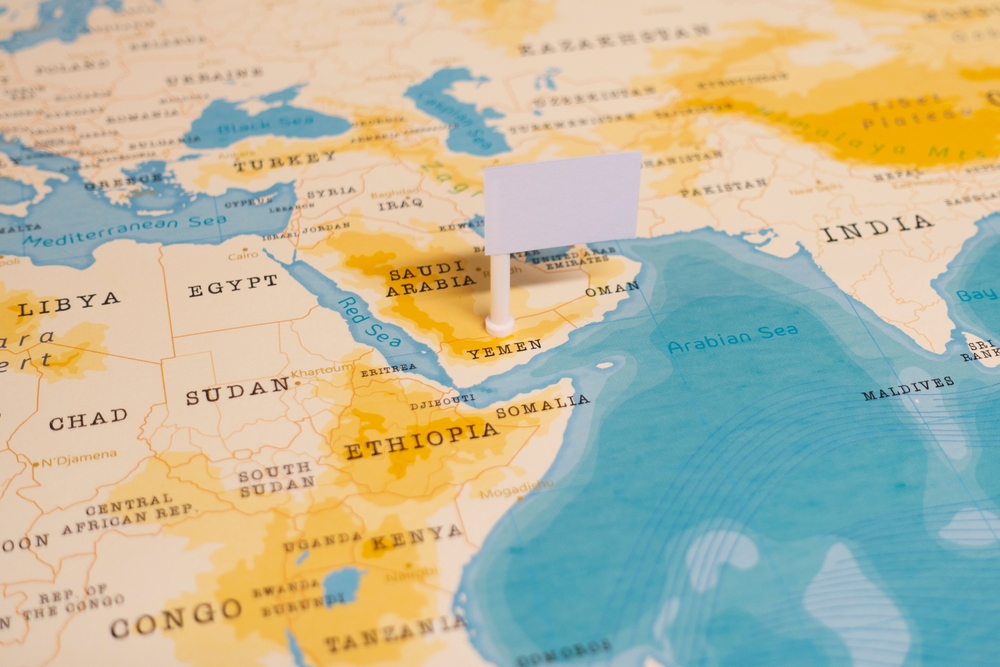New research shows that existing economic forecasting vastly underestimates the impact of conflict on marginalized countries. National income for war-torn nations like Afghanistan, Niger and Yemen could be up to 50 to 70 percent lower than existing estimates by the end of this century.
Armed conflict and economic growth are inherently coupled; armed conflict substantially reduces economic growth, while economic growth reduces the risk of armed conflict. When considering what our future will look like, one of the most critical inputs is the rate of economic growth.
“Prominent forecasts of economic growth up to the end of this century ignores the devastating effects of armed conflict. This will dramatically hurt low-income countries’ capacity to adapt to the effects of climate change,” said Håvard Hegre, Professor at Uppsala University and Research Professor at the Peace Research Institute in Oslo.
Long-term projections of Gross Domestic Product (GDP) are essential for estimating the impact and economic cost of climate change, and other social development outcomes like public health, food prices and armed conflict. One prominent forecast of changes to GDP up to the end of this century is the ENV-Growth model, which among other things is used to project emissions of greenhouse gases and countries’ ability to adapt to the effects of climate change.
Close to a quarter of all countries will have ongoing armed conflicts
Research shows that in any year in the future, 10%–25% of all countries, depending on the shared socioeconomic pathways, will have an ongoing armed conflict. Countries like the Scandinavian countries have incomes that are unaffected by conflict. But countries like Bangladesh, Tanzania, Afghanistan, and the Democratic Republic of the Congo are predicted to have conflict in 2100 in 40%–60% of the simulations.

Armed conflict and its effect on economic growth
Researchers from Uppsala University, Mistra Geopolitics, the Peace Research Institute Oslo and Carleton University in Canada, have simulated the incidence of armed conflict and its effect on economic growth simultaneously along the economic pathways. The results show that today’s most marginalized societies will be more vulnerable to the impact of climate change than indicated by current income projections.
The researchers successfully model the effect of the conflict trap on economic growth over the course of the 21st century, providing a first indication of how the ENV-Growth projections of GDP per capita can be corrected for the effect of armed conflict. Globally, their corrected projections are close to 25% lower than the original at the end of the century for the most optimistic Shared Socioeconomic Pathways, and more than 30% lower in the least optimistic ones.
The implications of this research indicate that today’s most marginalized societies will be substantially more vulnerable to the impact of climate change than indicated by existing income projections.
The research is summarized in the blog post Bias in economic models ignores the impact of war in poor nations and the journal article The ‘conflict trap’ reduces economic growth in the shared socioeconomic pathways.
#MistraGeopolitics #Economy #Conflict #Climate
Featured

Håvard Hegre

Ylva Rylander
Håvard Hegre at Uppsala University
Håvard Hegre is a Professor at the department of Peace and Conflict Research at Uppsala University. His research focus on development, democratization, peace, armed conflict, climate change and measurement of democracy. Håvard is performing research in Mistra Geopolitics’ Foresight and Emerging Technologies theme.
News story written by Håvard Hegre and Ylva Rylander, Communications Officer for Mistra Geopolitics at SEI.
Uppsala University is a core partner in the Mistra Geopolitics research programme that is hosted by SEI and funded by Mistra.



